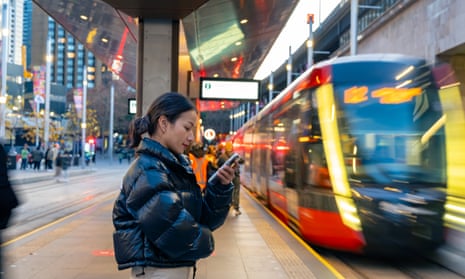First Ukrainian refugee to arrive in UK after Russia invasion says even the British dogs are better behaved, but that ‘the weather is sad’. Sharing a bowl of homemade Ukrainian borscht with your neighbours is one way to make friends in a new country, according to the first refugee to arrive in the UK after Russia invaded her country three years ago.
![[Diane Taylor]](https://i.guim.co.uk/img/uploads/2025/01/09/Diane_Taylor.png?width=75&dpr=1&s=none&crop=none)
Ukrainian refugee Valentyna Klymova, 72, now settled in Erith in Kent, has done just that, lovingly preparing the traditional soup containing beetroot, other vegetables and meat stock, served with a dollop of sour cream and rye bread. She offers it to English people she knows and says it has had a positive reception. In turn, she has embraced quintessentially British fish and chips, although she has not yet tried to cook it at home.
![[Ukranians applying for UK visas in Paris, with Valentyna Klymova at the back of the queue]](https://i.guim.co.uk/img/media/18434f1f6b415413d6efcb8a4aaf3c91d7f56e40/0_110_480_480/master/480.jpg?width=445&dpr=1&s=none&crop=none)
“Sharing food is a good way to get to know people,” says Klymova. She was one of the first people to leave Ukraine after Russian tanks rolled in on 24 February 2022. Her daughter Nataliya Rumyantseva, 46, who has lived in the UK since 2008 and works here as an academic, was anxiously glued to the news as the threat of the Russian invasion grew in the weeks before the war began.
Klymova lived in Kharkiv, Ukraine’s second largest city, which is just 19 miles (30km) from the Russian border and has been heavily bombed by the invading forces. “Mum knew I was keen for her to leave Ukraine before the war started, but I tempted her by booking her a spa holiday in the west of the country close to the Hungarian border so that she could get out quickly if necessary,” says Rumyantseva.
As soon as the invasion began she told her mother to walk across the border into Hungary. Klymova joined the first queue of people waiting to cross. Pre-war, the border was popular for people crossing both ways between the two countries. From Hungary she flew to Paris under the EU’s Schengen agreement and because the hastily set up UK visa scheme for Ukrainians had not yet been finalised, she found herself crisscrossing the French capital between the UK’s visa processing centre, the embassy and the consulate, before finally getting a visa. Rumyantseva joined her in Paris to help her navigate the bureaucracy.
“After three days we finally had the permission to travel and got to Gare du Nord to take the Eurostar to the UK. The UK immigration officials at the station told us Mum was the first Ukrainian they had seen travelling to the UK since the Russian invasion.”.
As for many Ukrainians who arrived in the UK, there have been challenges for Klymova. According to government figures, 214,400 Ukrainians have arrived in the UK since the war started, with an estimated 42% of them subsequently returning to Ukraine. The majority of those who have settled are women and children, and Klymova is among 6% of those who are over the age of 65.
As the third anniversary of Russia’s invasion of Ukraine approaches, the future has become increasingly uncertain. Her flat in Kharkiv is still standing and her furniture and other things remain as she left them because she initially thought she would be away from home for only a few weeks.
“I used to come to the UK for joyful reasons to visit Nataliya before the war started, but this time I was running away from my country and felt lost and overwhelmed,” says Klymova. “Nataliya had asked me before the war to learn English. I was in my early 60s then and said I was too old. When I arrived here after the war started, I was 69 and for the first time I began to learn the English ABC. I’m still attending college to continue to improve my English.”.
“Sometimes in Kharkiv there are sirens which last for 16 hours. It is very hard,” says Klymova. Life in the UK is much more peaceful. She has embraced many British traditions and says that the welcome she has received and the diversity of the people who live here has changed her own attitudes. “Because I have been so well received here it has made me more open to diversity. There is more of a monoculture in Ukraine. The UK is a very good country for refugees.”.
She says it took her a while to get used to the traffic being “the wrong way round” but now she loves travelling on London transport, particularly the number 99 bus. “People are so polite here. One of the first phrases I learned was ‘thank you driver’ when you press a button on the bus to request your stop.”.
Along with learning to love English food, she adores the English seaside, often visiting beaches along the Kent coast, as well as countryside such as the Cotswolds. For now, Klymova is trying to take life one day at a time and in the interests of her blood pressure tries not to spend all her time thinking about the fate of her beloved country.
“I am so grateful to English people. Strangers say good morning and good evening which doesn’t happen in Ukraine and people are so helpful with giving directions. Even the dogs here are better behaved than the ones in Ukraine. The only negative thing here is the weather. In Ukraine, we have three times more sunny days than in the UK. The weather here is really sad.”.































